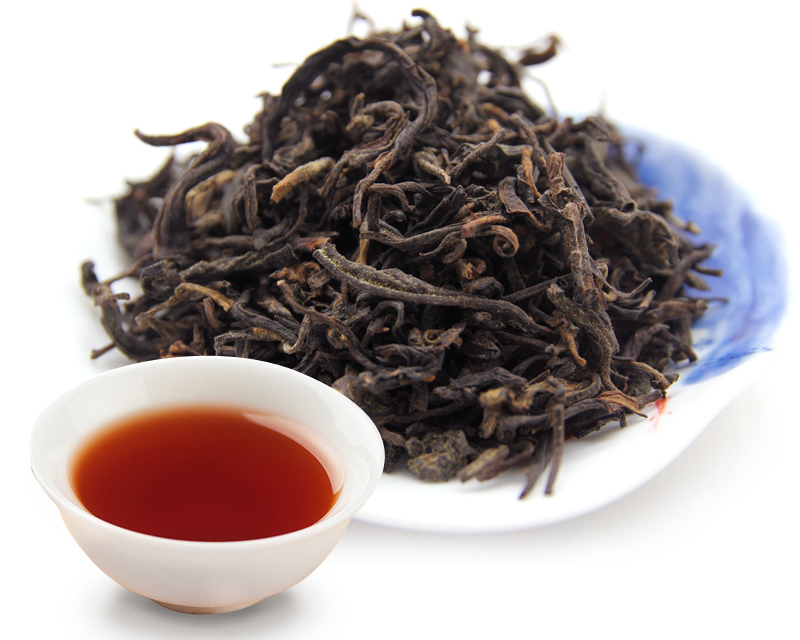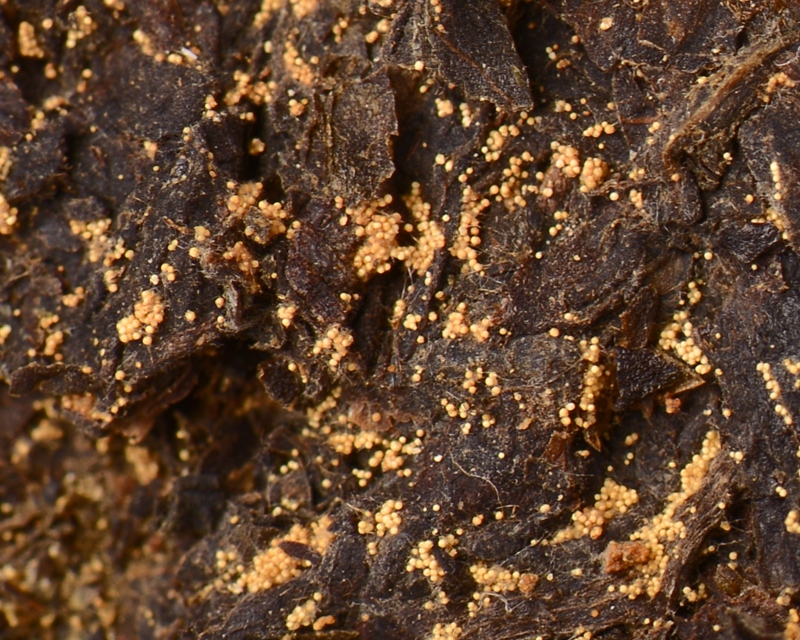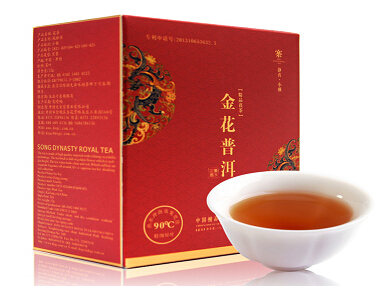Golden Flower Loose Tea (also known as Fuzhuan Loose Tea) is one of the most distinctive dark teas in the six major tea categories. It uniquely contains 'Golden Flowers' (primarily Eurotium cristatum). Golden Flower Loose Tea is a post-fermented and fully-fermented tea. Fuzhuan tea is highly favored by ethnic minorities in Xinjiang and other regions, with a long production history dating back to the Tang Dynasty's 'Tea-Horse Trade,' playing a significant role in the trade history between ethnic minorities and Han Chinese. The Golden Flower Loose Tea in this study is produced by the Dark Tea Research Institute of Hunan City University, mimicking the processing techniques of Fuzhuan tea using Anhua dark tea as the raw material.

Eurotium cristatum is the dominant microorganism responsible for the unique flavor of Golden Flower Loose Tea. In addition, the tea also contains other Eurotium species such as Eurotium intermedius, Eurotium repens, Eurotium chevalieri, Eurotium amstelodami, Eurotium rubrum, and another unidentified Eurotium species (possibly close to Eurotium herbariorum or Eurotium halophilicum). Other isolated molds include Aspergillus niger, Mucor, Paecilomyces, Penicillium oxalicum, and Penicillium brevicompactum, but no Aspergillus flavus has been detected.

Existing research shows that Fuzhuan tea has protective effects on the digestive system's microecological balance and gastrointestinal function. Tea beverages fermented with Eurotium cristatum contain high levels of organic acids, which directly influence digestive activity and the absorption of tea polyphenols in the human body. These compounds offer various health benefits, such as regulating women's menstrual cycles and alleviating symptoms of arthritis and gout. These findings suggest that the active components of Golden Flower Loose Tea undergo significant changes during microbial fermentation, likely due to enzymes produced by the microorganisms. Studies also indicate that Eurotium species in Fuzhuan tea produce various enzymes. For example, Eurotium repens has been reported to produce neutral protease, while Eurotium chevalieri produces polygalacturonase and cellulase. Additionally, Eurotium repens exhibits strong methylation and degradation effects on volatile esters, and Eurotium chevalieri produces phenylalanine.

Researchers first discovered a novel metabolite from Eurotium chevalieri with unique antioxidant activity. Later, they isolated various derivatives from Eurotium chevalieri cultures, finding that these derivatives also possess antioxidant properties. Furthermore, studies on the antioxidant characteristics of mycelial extracts from multiple Eurotium species, such as Eurotium echinulatum, Eurotium repens, and Eurotium halophilicum, revealed that they also exhibit antioxidant effects and enhancer activity. This suggests that Eurotium species play a crucial role in forming the distinctive color, aroma, and taste of Fuzhuan tea.